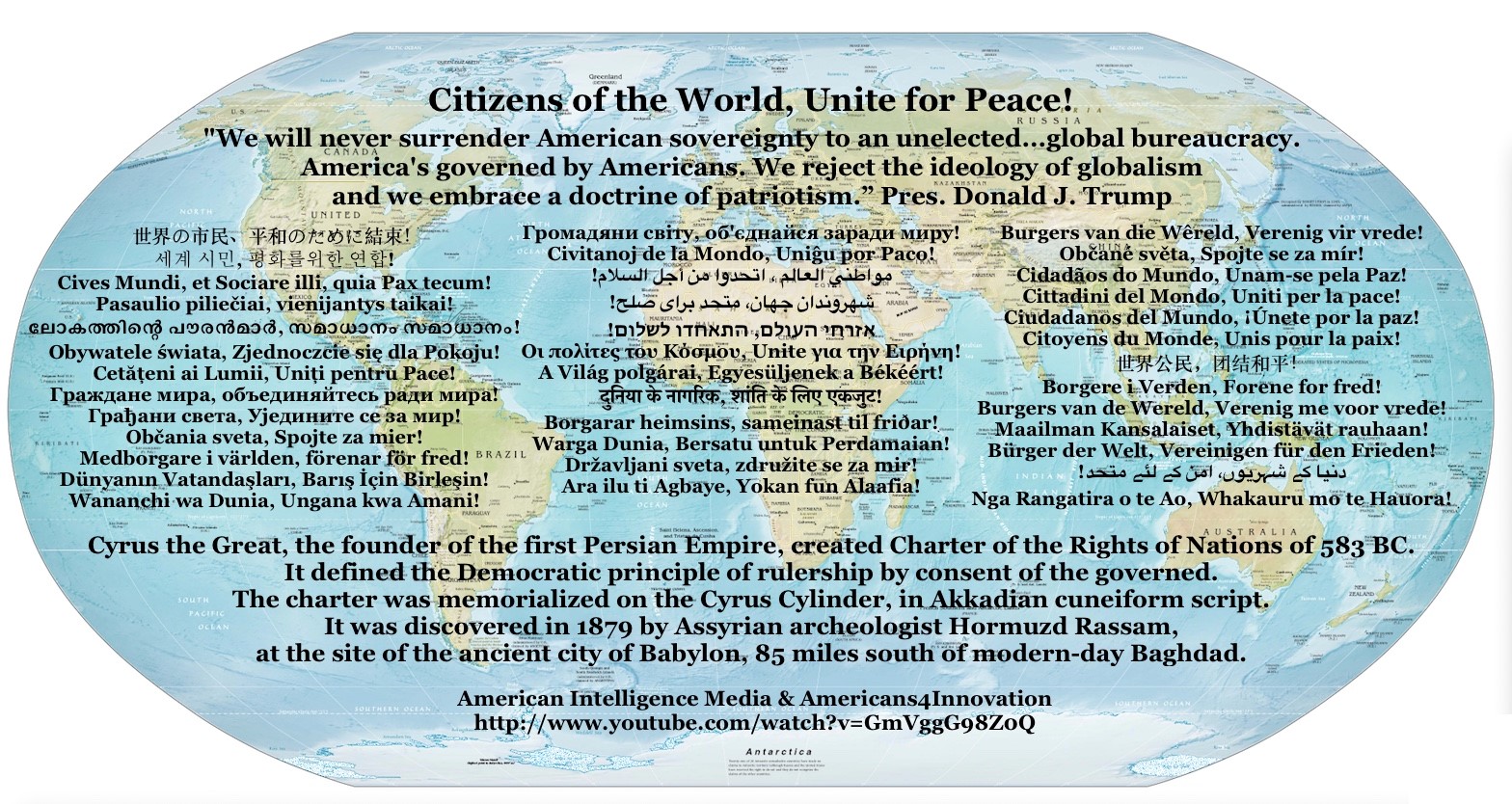In an age characterized by rampant individualism and factionalism, the Bahá’í teachings serve as a profound reminder of our collective oneness. This ideology espouses the notion of being “Citizens of the World,” a compelling and transformative paradigm that urges humanity to transcend the superficial boundaries that divide us. Expanding our spiritual borders involves recognizing and embracing our shared humanity while fostering an enlightened global consciousness.
At the heart of the Bahá’í teachings lies the principle of unity in diversity. This concept posits that while cultures, ethnicities, and belief systems may differ, these variances contribute to the rich tapestry of human existence rather than detracting from it. The metaphor of the garden is particularly poignant here: each flower, unique in hue and fragrance, coexists harmoniously, contributing to a collective beauty that is greater than the sum of its parts. This metaphor not only conveys the aesthetic appeal of diversity but also highlights the intrinsic value each individual brings to the global community.
The Bahá’í vision of citizenship transcends national allegiances. It calls for a recognition that loyalty to God and humanity supersedes allegiance to any particular nation or creed. Such a worldview encourages individuals to engage with global issues—from environmental degradation to social justice—imbued with a sense of responsibility that acknowledges our interconnectedness. By embracing a cosmopolitan ethos, adherents cultivate a broader perspective, enabling them to contribute effectively to the welfare of humanity.
Integral to the Bahá’í perspective is the notion of progressive revelation. This principle asserts that religious truths are not static; rather, they evolve over time through a succession of divinely inspired teachers. Each prophet, from Moses to Muhammad to Bahá’u’lláh, has imparted wisdom tailored to the needs of their era. Thus, the Bahá’í faith encourages an open-minded approach to spirituality: one wherein followers accept the continuous unfolding of truth and learn from the multitude of religious traditions worldwide. This broadens spiritual horizons, rendering the believer more adept at traversing cultural divides.
Furthermore, community building is essential to realizing the Bahá’í ideal of global citizenship. The teachings advocate for collaborative efforts that promote mutual understanding and respect among diverse populations. Local and global initiatives, such as interfaith dialogues and community development programs, exemplify this commitment to collective action. These endeavors not only address pressing social issues but also cultivate an environment conducive to nurturing relationships that transcend superficial differences. In this sense, the Bahá’í community acts as a microcosm of a harmonious world, inviting others to partake in this experience of unity.
Bahá’í teachings also emphasize the importance of education as a transformative force. Education, in this paradigm, extends beyond the mere acquisition of knowledge; it harbors the potential to develop character, instill values, and promote critical thinking. The idea is to nurture young minds that are cognizant of their identity as global citizens. Through the lens of an educated populace, societies are empowered to address challenges collaboratively, weaving together innovative solutions that recognize both local particularities and global contexts.
Ethical considerations underpin the Bahá’í framework for global citizenship as well. Moral development—and its connection to spirituality—demands introspection and a commitment to ethical living. A commitment to righteousness facilitates the emergence of individuals who act in accordance with the highest ethical standards, whether in personal relationships, professional dealings, or civic engagement. This ethical compass serves as a guiding star amidst societal complexities, fostering trust and cooperation among individuals who may otherwise be strangers.
Moreover, the concept of detachment is vital in shaping the Bahá’í citizen. Detachment does not imply apathy but signifies a conscious choice to prioritize the greater good over ephemeral desires or nationalistic sentiments. This perspective enables individuals to engage with global issues without becoming enmeshed in divisive narratives, fostering an atmosphere of compassion and empathy. In becoming detached from the chains of self-interest, Bahá’í individuals demonstrate their commitment to the welfare of humanity at large.
As we reflect upon the metaphor of being “Citizens of the World,” we are invited to engage more deeply with the intrinsic qualities that comprise our shared human experience. We must cultivate open, honest dialogues that not only acknowledge but celebrate our differences. Crucially, we should focus on building bridges rather than walls, enriching our collective understanding and fortifying our networks of connection.
In conclusion, Bahá’í teachings provide a compelling framework for expanding our spiritual borders and embracing a holistic vision of global citizenship. Through the principles of unity in diversity, progressive revelation, community building, and ethical engagement, perpetrators of this ideology transcend national and cultural confines, promoting a world replete with understanding, respect, and mutual empowerment. Our task is to embody these principles, fostering a more compassionate global society in which all individuals are recognized as integral members of the human family—truly citizens of the world.
